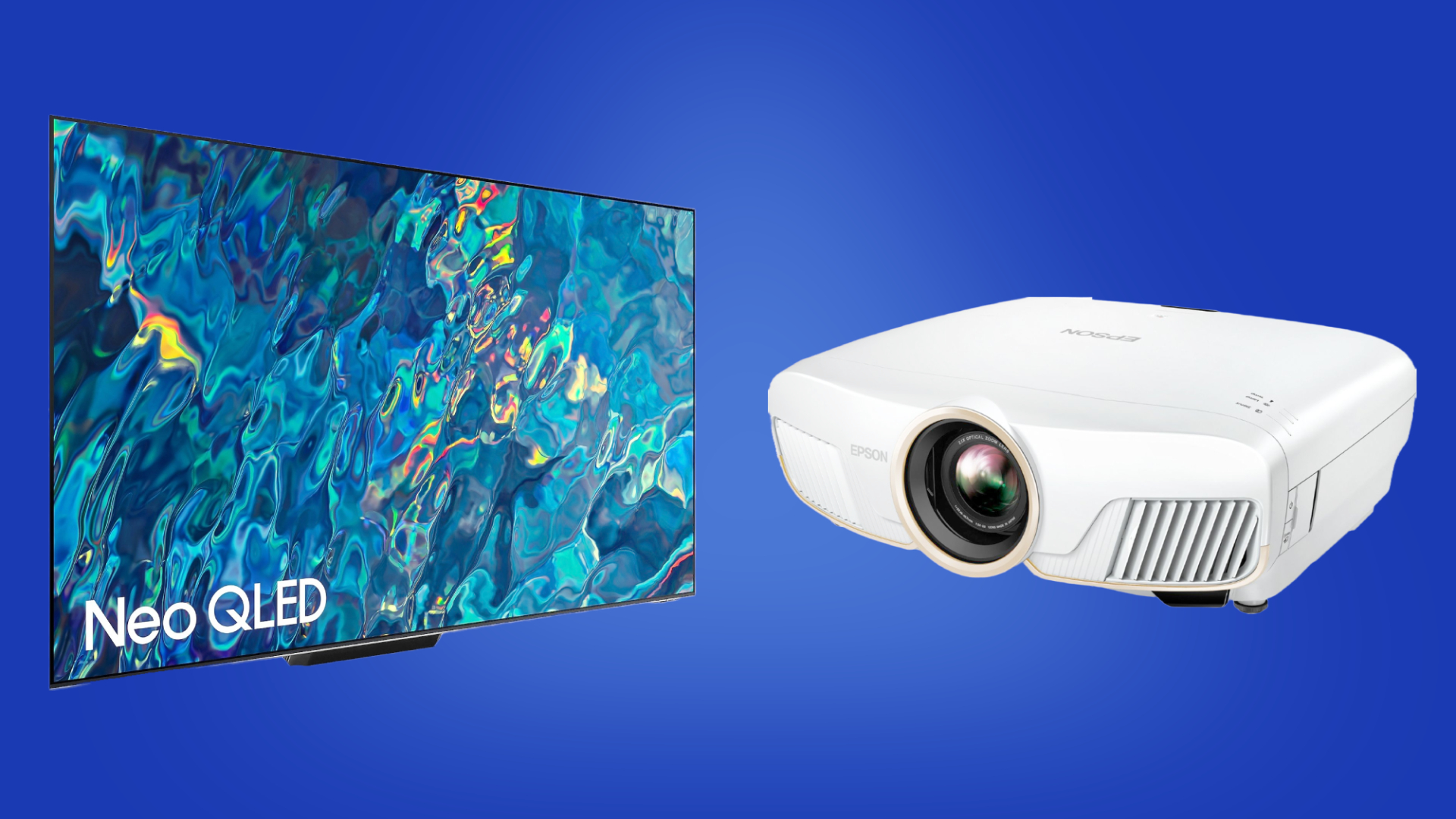
Super Bowl Sunday is almost upon us, and this year’s match finds the San Francisco 49ers pitted against the Kansas City Chiefs. Taylor Swift will almost certainly be there, but the average fan who doesn't have $10,000 to spend on tickets is likely to be watching from home.
The good news here is that watching the game from home with the best 4K projectors and best TVs can be an incredibly immersive experience. For sports like football, the bigger the screen, the better, and both projectors and TVs can deliver a life-size and life-like image at a reasonable cost – certainly more reasonable than Super Bowl 2024 tickets, thanks to Super Bowl TV deals. But what's the trade-off between the two?
Should you buy a projector for the Super Bowl?
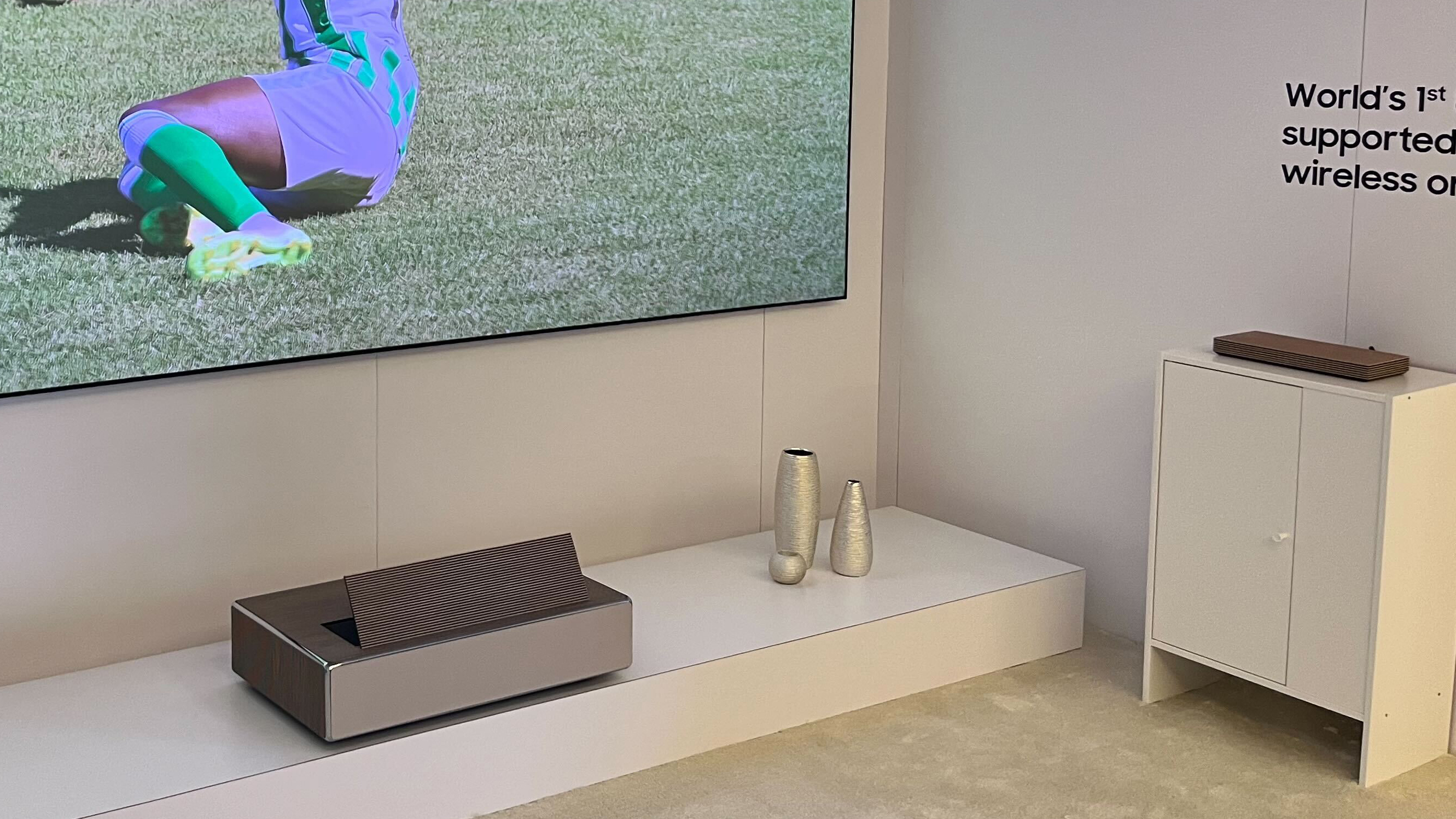
The best ultra short throw projectors provide an easy and affordable way to get a 100-inch or larger picture in your living room, and some have powerful enough brightness that you won’t have to draw the curtains or dim the lights. Some of these come bundled with a special projection screen that helps to boost image contrast, or you can buy a screen separately to use with the projector – check out our guide to buying a projector screen for information on what to look for when shopping.
Ultra short throw projectors have built-in speakers and these can provide well-balanced and room-filling sound. They also have built-in streaming capability and in some cases a built-in digital TV tuner for connecting an antenna. (The game is being broadcast on CBS, but you’ll also be able to catch it on some of the best streaming services, including Paramount Plus, YouTube TV, and Fubo.) These two features make ultra short throw projectors an all-in-one solution that, like a TV, is easy to set up and use.
Should you buy a big-screen TV for the Super Bowl?
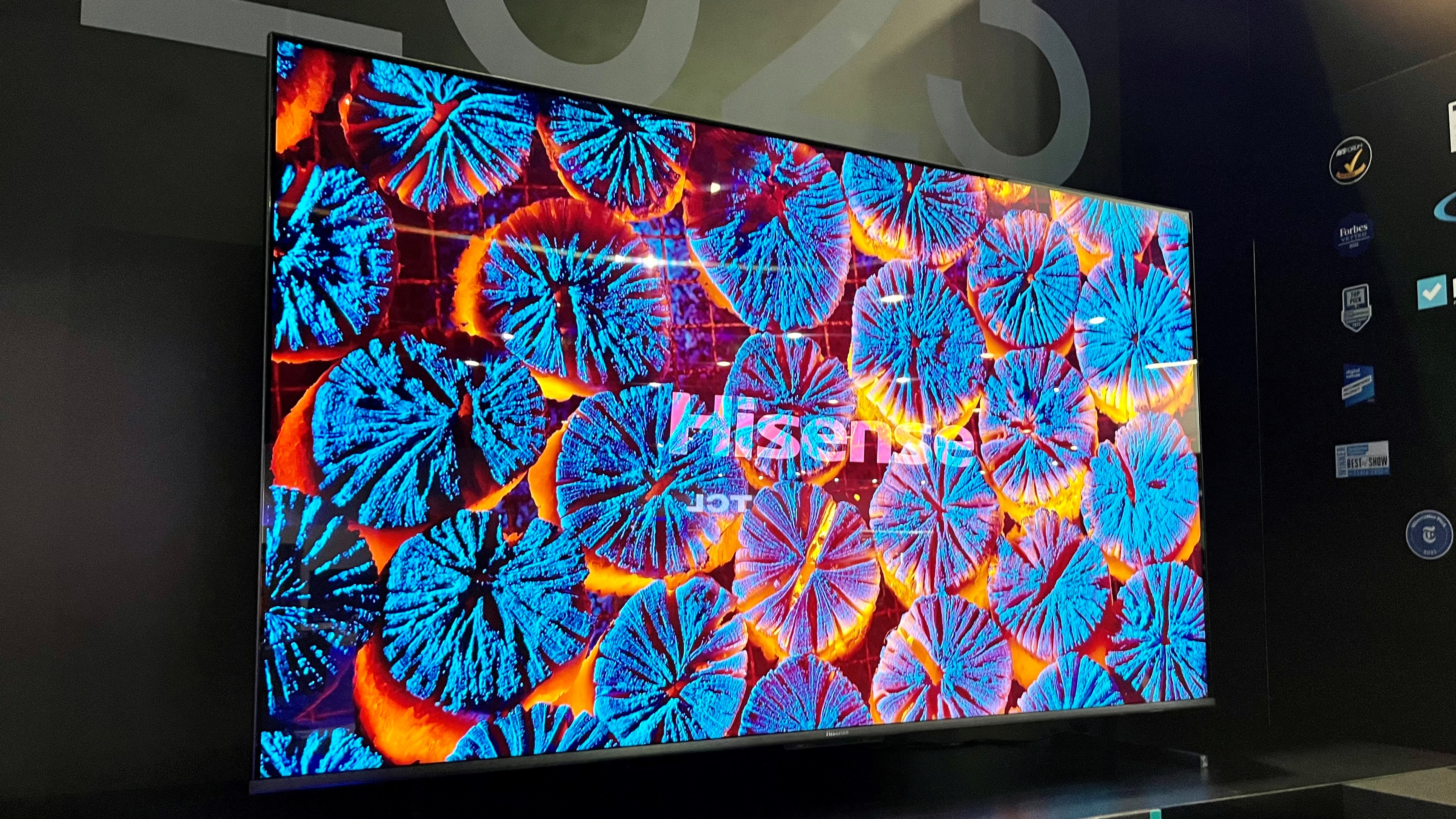
The best 85-inch TVs provide an image nearly as large as a projector-and-screen setup, and they can easily beat projectors when it comes to brightness. Over the past year, we’ve also seen TV makers add surprisingly affordable 98- and 100-inch models to their lineups, which gives you a big-screen TV option that size-wise is on par with projector installations.
Are there disadvantages to buying an ultra-large TV over a projector? Some models, even high-end ones with mini-LED backlights, have diminished contrast and color saturation when viewed from off-center seats. Granted, that will be less of an issue with a 98-inch screen, but when you’re hosting a Super Bowl viewing party, the crowd tends to spread out in the room.
Screen reflections are another potential issue when viewing on a big-screen TV in a room with overhead lights or daylight streaming in from undraped windows. It will be less of a problem when viewing bright content like sports, but when you watch movies or TV shows with dark scenes, light reflections on a TV’s screen can be very distracting. Some TVs feature an anti-glare screen coating to reduce screen reflections, and those models are worth seeking out if you plan to watch in a light-filled room.
Lastly, many TVs have weak built-in sound. That issue is easily remedied by pairing the TV with the best soundbars, but that’s not the same all-in-one solution you’ll get with an ultra short throw projector.
The best projectors for Super Bowl 2024
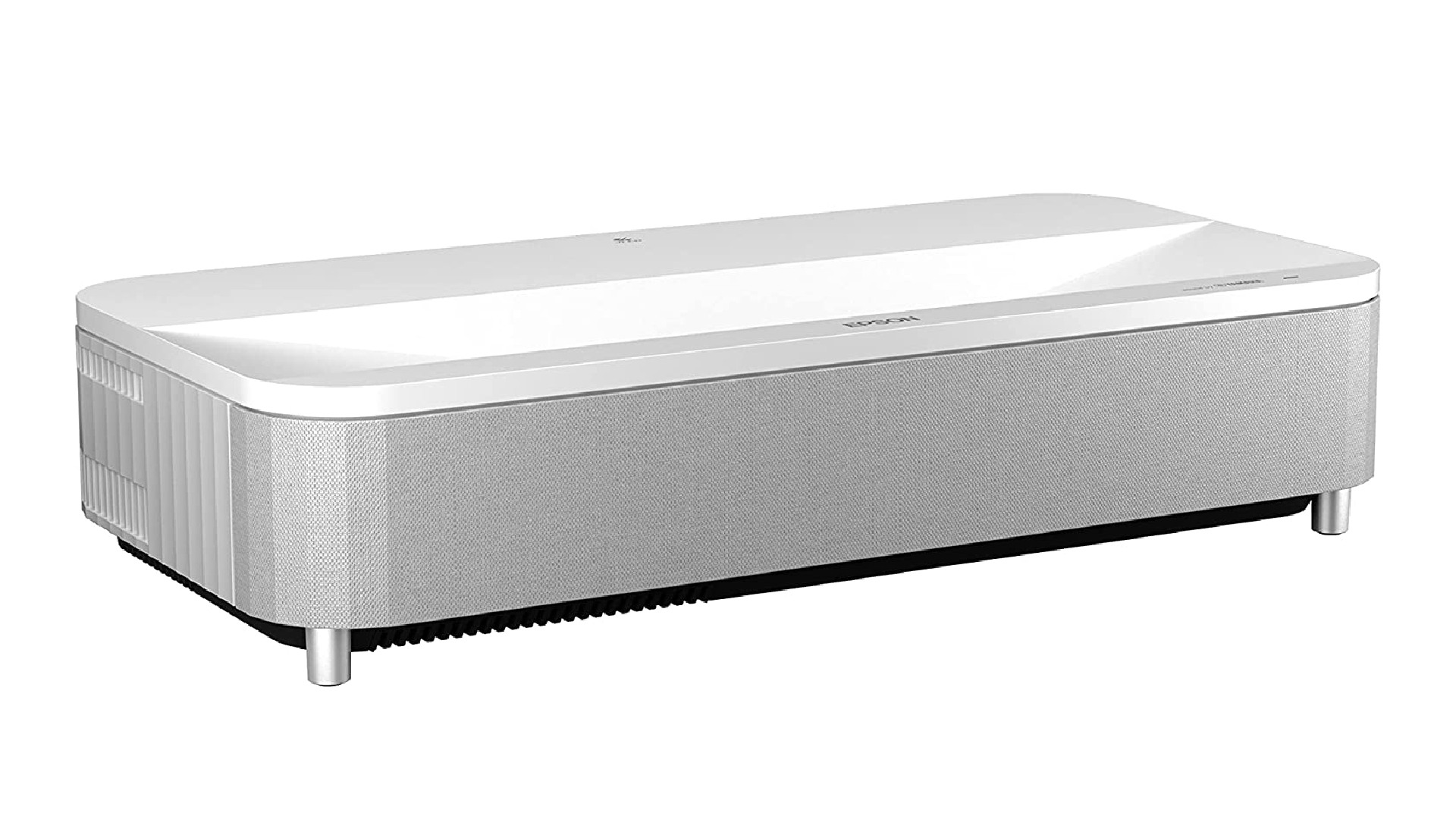
1. Epson EpiqVision Ultra LS800
We ranked the Epson EpiqVision Ultra LS800 as best for sports in our best ultra short throw projector guide for one very good reason: high brightness. The LS800 can beam images up to 150 inches and its brightness is specced at 4,000 lumens, which is significantly brighter than most other ultra short throw projectors.
Epson’s projector uses a laser 3LCD light engine and has a built-in 2.1-channel Yamaha sound system that we found to “pack a punch” in our Epson LS800 review. The LS800 is also specced for under-17ms input lag in Game mode, making it a great option for gaming. Epson initially sold the LS800 for $3499, but its price has since dropped to $2,999. With that discount, you’ll have plenty of cash left over for a screen.
2. LG Cinebeam HU915QE

The LG Cinebeam HU915QE is another model featured in our best ultra short throw projectors guide, where it holds the crown for best picture quality. With a specified 3,700 lumens brightness, the HU915QE is nearly as bright as the Epson LS800, but its 3-laser DLP light engine also lets it deliver an expanded color range with 4K HDR sources. With Super Bowl 2024 available in 4K HDR on cable and satellite services, along with YouTube TV and Fubo, just think of how deep those reds on the Chiefs’ uniforms will look when projected by the LG HU915QE.
Other reasons to buy the HU915QE include its built-in webOS smart interface for streaming, which is the same one found on the company’s TVs, and its potent speakers, which we found to put “out enough sound to readily overwhelm a 200 sq.ft. room” in our LG Cinebeam HU915QE review. Perhaps the best reason to get LG’s projector is the deep discounts it's currently seeing, with select retailers selling it for under $4,000 – a greater than $2,000 discount on its initial $5,999 cost.
3. Samsung The Premiere LSP9T
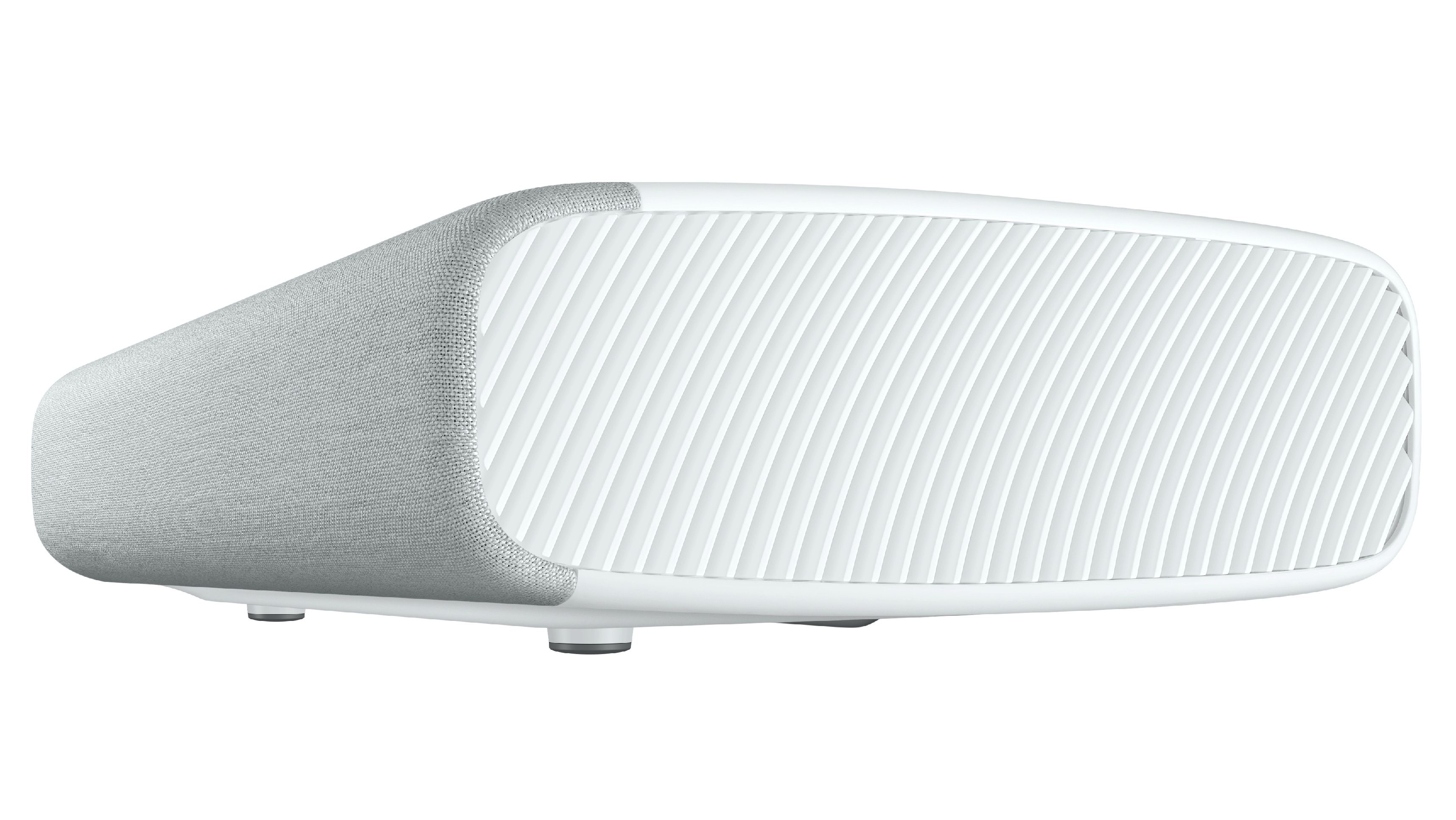
Samsung’s The Premiere LSP9T is another 3-laser DLP ultra short throw projector, one offering excellent overall picture quality, but with lower brightness than the Epson and LG models listed above. The Premiere is another entrant in our best ultra short projectors guide, where its 40-watt 4.2-channel built-in audio system earned it the title of best sound. Other advantages The Premiere brings include the same Tizen smart TV OS found in the company’s TVs, and a very living room-friendly design – something that not all projectors can claim.
At around $6,000, The Premiere is a notably higher-cost option than the other projectors listed here. But if you’re looking for a projector that provides a complete package of great picture, powerful sound, and sophisticated streaming, it’s well worth consideration.
The best big-screen TVs for Super Bowl 2024
1. TCL QM8 Class
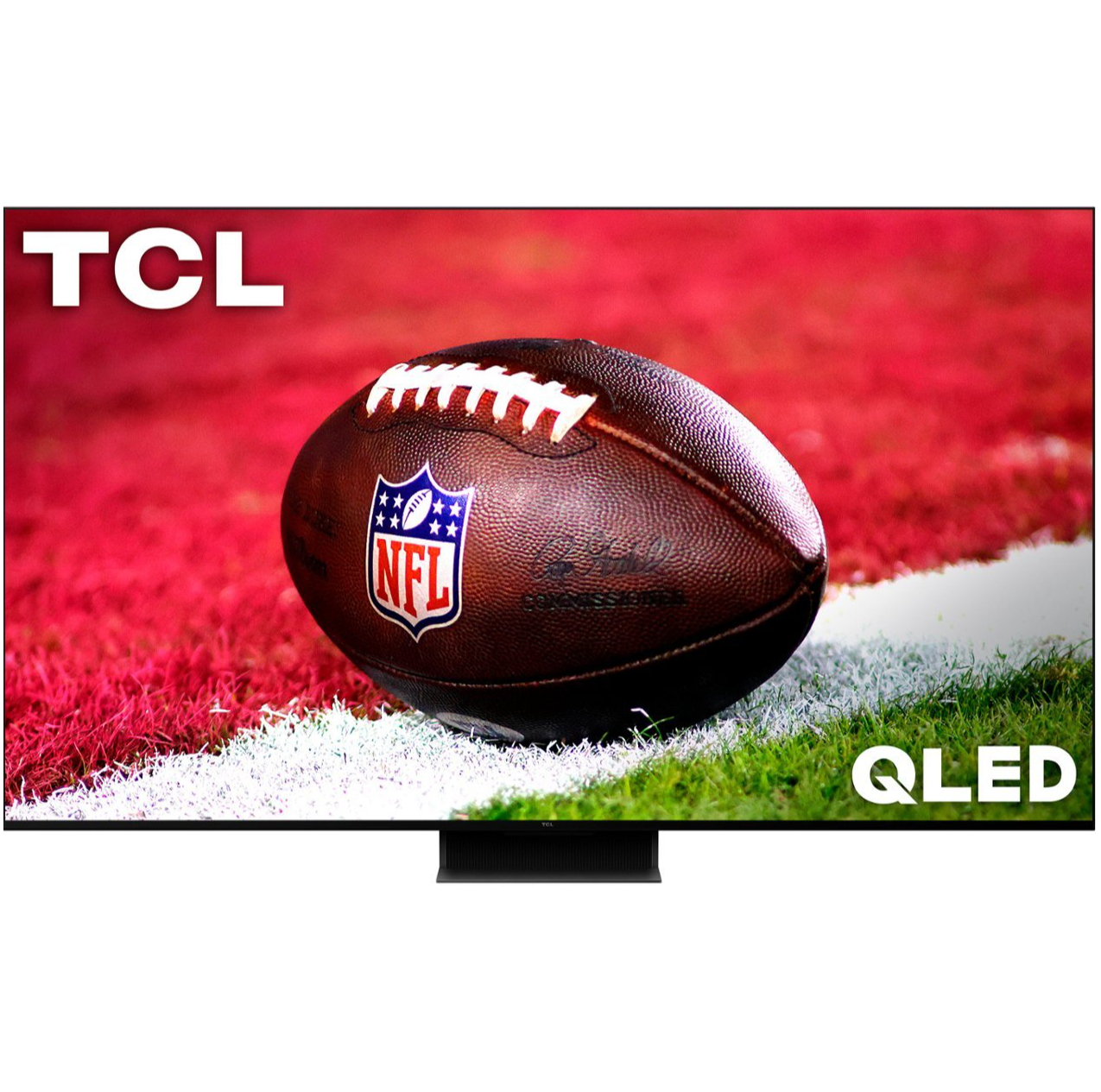
TCL is the official TV partner of the NFL. And while that should make TCL’s TVs a natural choice for Super Bowl 2024, there are many other aspects of the company’s flagship QM8 Class that make it a great TV for watching football and other sports.
The QM8’s mini-LED backlight can deliver a seriously bright picture – we measured an astonishing 2,321 nits in our TCL QM8 Class review. It also has an anti-glare screen to fight screen reflections and has very good motion handling, which is a big plus for sports viewing. Off-center viewing is just average, with some color and contrast fade when viewing the TV from a far-off side of the room. But with both 98- and 85-inch screen size options, there’s a good chance that most viewers will be sitting more or less directly in front of the screen.
The 98-inch TCL QM8 Class is currently selling for $5,999 – a 50% discount on its initial $11,999 price. An 85-inch version is now selling for $1,799, which is $1,000 off the $2,799 list price and an excellent deal for a big-screen mini-LED TV.
2. Hisense U8K
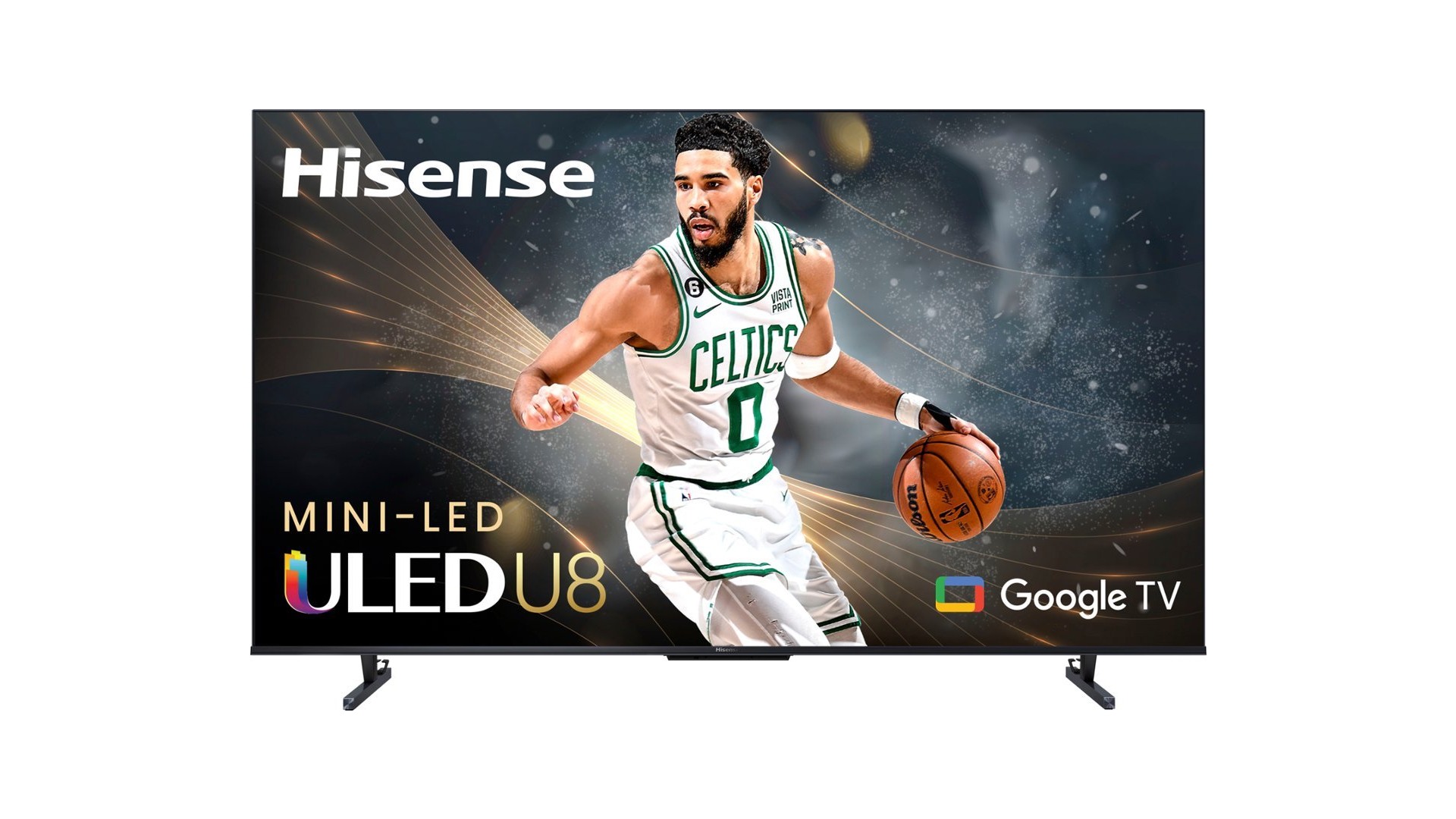
The Hisense U8K is another affordable mini-LED TV that’s sold in a range of screen sizes – in this case with a 100-inch screen option. Brightness isn’t as powerful as what you get with the TCL QM8 Class – in our Hisense U8K review we measured around 1,600 nits – but it does have an anti-glare screen coating to reduce reflections when viewing in bright rooms.
As with TCL’s TV, contrast and color saturation take a hit when viewing from off-center seats, but that shouldn’t be much of an issue, especially if you opt for the 100-inch screen. Motion handling isn’t as good as what you get with the TCL in the default picture presets, but Hisense provides Clarity settings with independent blur and judder adjustments to improve the TV’s motion performance.
The 100-inch version of the Hisense U8K is now selling at Best Buy for $2,999, a $7,000 discount off its original price and an incredible deal for a TV that rivals the size of most projector-and-screen setups. If 85 inches is more your style, that version is also available at Best Buy for $1,799.
3. Samsung Q80C
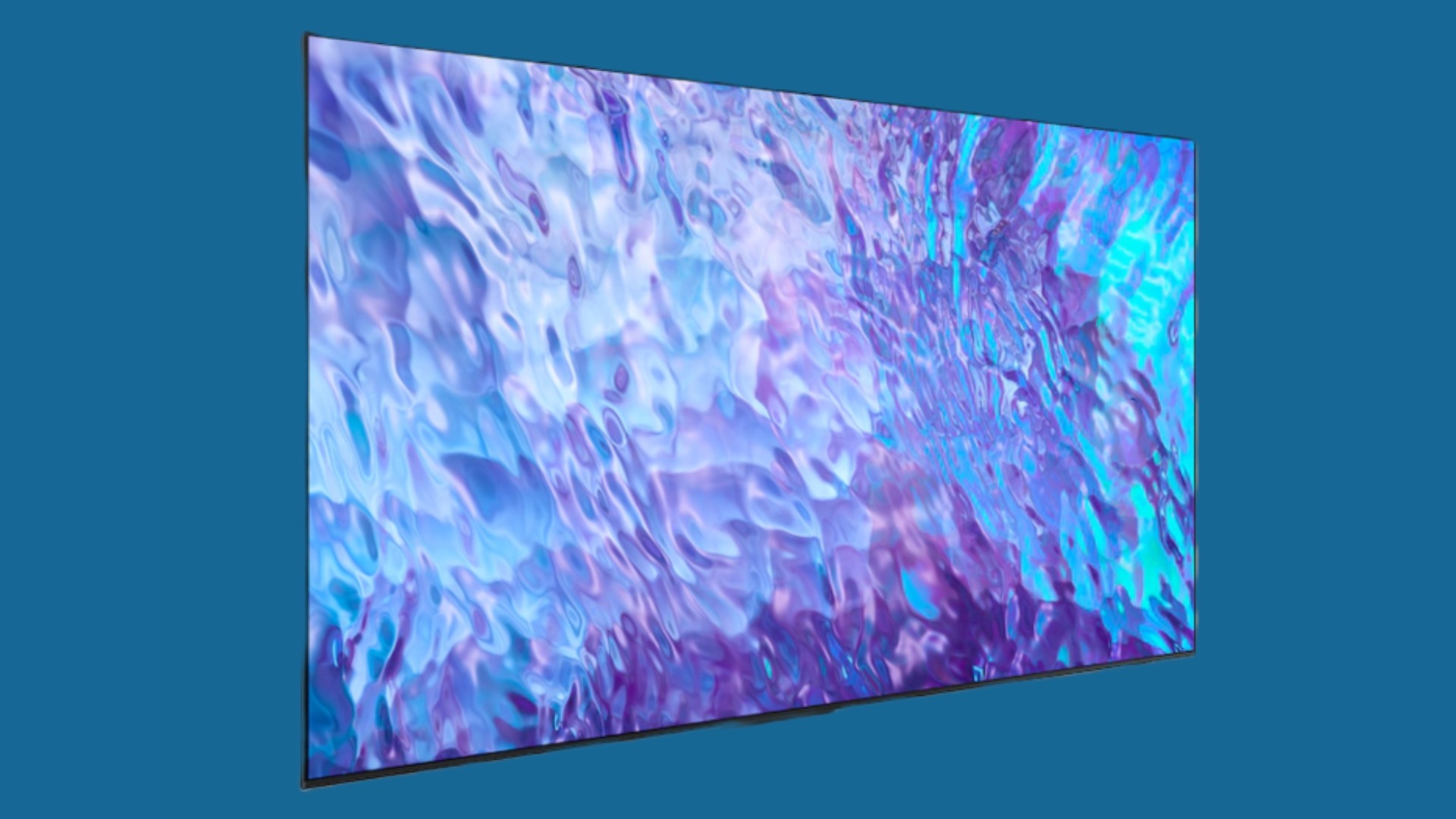
Samsung’s Q80C is the top model in the company’s regular QLED series. These sets use a regular LED backlight as opposed to the mini-LED one found in the Hisense U8K and TCL QM8, and as such aren’t capable of hitting the same brightness peaks. In our Samsung Q80C review, we measured brightness at 929 nits.
Even so, we found that the Q80C “compensates for some of that brightness reduction by delivering an arguably more consistent, evenly lit picture,” when we tested it. Motion handling also proved to be a high point in our test, with Samsung’s powerful Picture Clarity adjustments helping to retain resolution in fast-moving images.
You can buy the 98-inch version of the Q80C for $4,999, a $3,000 discount off the original price. The 85-inch Q80C is also now on sale for $1,899, a $1,400 price cut.







